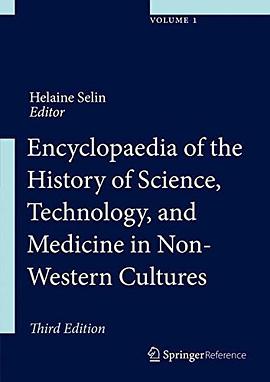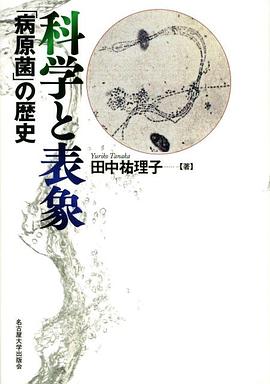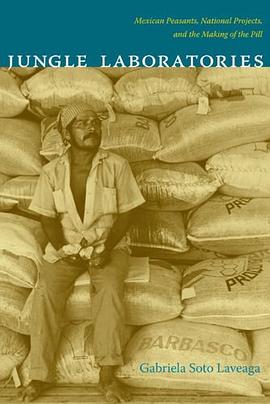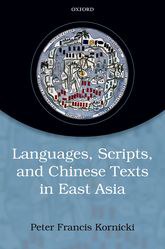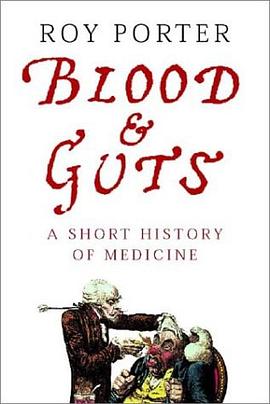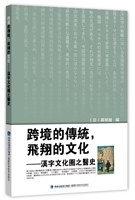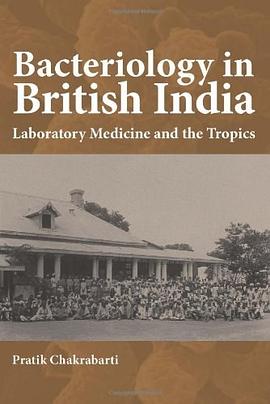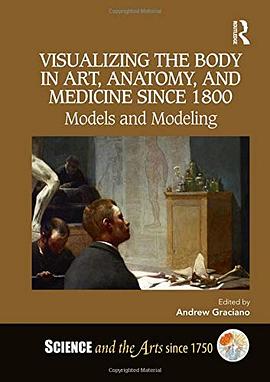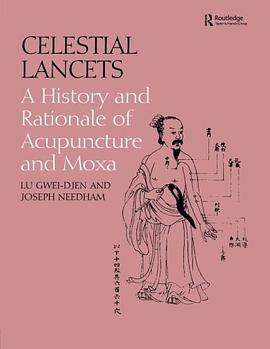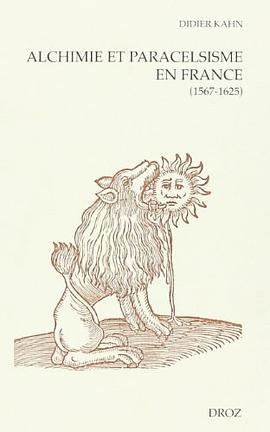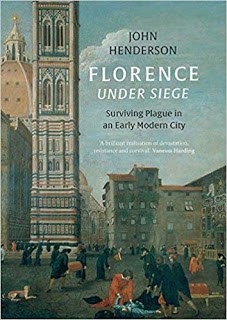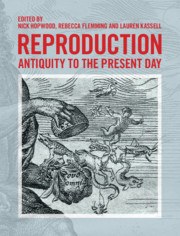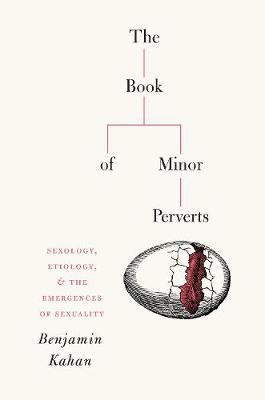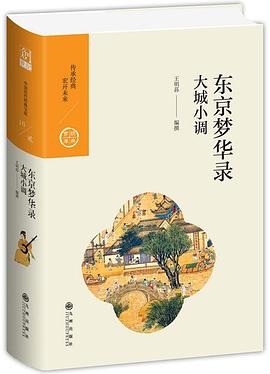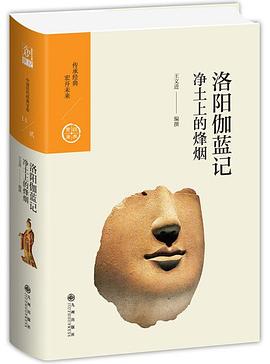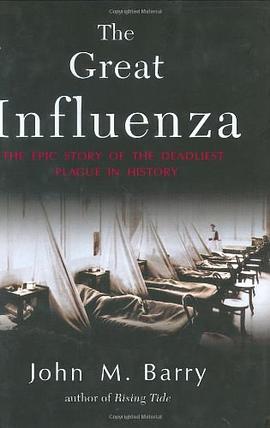

具体描述
No disease the world has ever known even remotely resembles the great influenza epidemic of 1918. Presumed to have begun when sick farm animals infected soldiers in Kansas, spreading and mutating into a lethal strain as troops carried it to Europe, it exploded across the world with unequaled ferocity and speed. It killed more people in twenty weeks than AIDS has killed in twenty years; it killed more people in a year than the plagues of the Middle Ages killed in a century. Victims bled from the ears and nose, turned blue from lack of oxygen, suffered aches that felt like bones being broken, and died. In the United States, where bodies were stacked without coffins on trucks, nearly seven times as many people died of influenza as in the First World War.
In his powerful new book, award-winning historian John M. Barry unfolds a tale that is magisterial in its breadth and in the depth of its research, and spellbinding as he weaves multiple narrative strands together. In this first great collision between science and epidemic disease, even as society approached collapse, a handful of heroic researchers stepped forward, risking their lives to confront this strange disease. Titans like William Welch at the newly formed Johns Hopkins Medical School and colleagues at Rockefeller University and others from around the country revolutionized American science and public health, and their work in this crisis led to crucial discoveries that we are still using and learning from today.
The Washington Post’s Jonathan Yardley said Barry’s last book can "change the way we think." The Great Influenza may also change the way we see the world.
作者简介
John M. Barry is an American author and historian, perhaps best known for his books on the Great Mississippi Flood of 1927 the influenza pandemic of 1918 and his book on the development of the modern form of the ideas of separation of church and state and individual liberty. His most recent book is Roger Williams and the Creation of the American Soul: Church, State, and the Birth of Liberty (Viking 2012).
Barry's 1997 book Rising Tide: The Great Mississippi Flood of 1927 and How It Changed America appeared on the New York Times Best Seller list and won the 1998 Francis Parkman Prize from the Society of American Historians for the year's best book on American history. His work on water-related issues was recognized by the National Academies of Sciences in its invitation to give the 2006 Abel Wolman Distinguished Lecture on Water Resources; he is the only non-scientist ever to give that lecture.
His 2004 book The Great Influenza: The Epic Story of the Greatest Plague in History was also a New York Times Best Seller, and won the 2005 Keck Communications Award from the United States National Academies of Science for the year's outstanding book on science or medicine. In 2005 he also won the "September 11th Award" from the Center for Biodefense and Emerging Pathogens at Brown University. He has served on a federal government's Infectious Disease Board of Experts, on the advisory board of MIT's Center for Engineering Fundamentals, and on the advisory committee at Johns Hopkins Bloomberg School of Public Health for its Center for Refugee and Disaster Response.
The expertise he developed in these two areas has involved him in policy-making, risk communication and disaster management strategies, and developing resilient communities, and this work resulted in his induction into Delta Omega, the academic honorary society for public health. More specifically, he has advised the private sector and local, state, national, and international government officials about preparing for another influenza pandemic. He has also both advised officials and taken a direct role in preparing for water-related disasters. A resident of New Orleans, after Hurricane Katrina he was also named to both the Southeast Louisiana Flood Protection Authority, which is the levee board overseeing several separate levee districts in the New Orleans area, and the state's Coastal Protection and Restoration Authority, which is responsible for hurricane protection for the entire state.
His first book, The Ambition and the Power: A true story of Washington, appeared in 1989 and explored the operation of the U.S. Congress, the use of power by Speaker of the House Jim Wright, and the rise of future Speaker Newt Gingrich. In 1995 the New York Times named it one of the eleven best books ever written on Congress and Washington.
With Steven Rosenberg, MD, Ph.D., chief of the Surgery Branch at the National Cancer Institute and a pioneer in the development of "immunotherapy" for cancer—stimulating the immune system to attack cancer—Barry co-authored his second book, The Transformed Cell: Unlocking the Mysteries of Cancer, which was published in 12 languages.
Barry has written for The New York Times, Time Magazine, Fortune, The Washington Post, Esquire, and other publications and frequently appears as a guest commentator on broadcast media.
He has also coached high school and college football, and his first published article was about blocking assignments for offensive linemen and appeared in a professional journal for coaches, Scholastic Coach.
目录信息
读后感
断断续续读了一部分,感觉书的内容贯穿了现代传染病学的历史,从巴斯德发现感染的原理开始,若干继承者不断深入探索,直至发现DNA/RNA遗传机制为止。 虽然以1918大流感为题,感觉事实上并不是那次流感的纪实。
评分p82,霍普金斯在医学范围以外有着巨大的影响。原译文,对医学界影响巨大有误。 本书翻译的非常不错哦,自从《摩根财团》以外,很少能看见这么精彩的译文,比如p13的“衣香鬓影”,太绝了!!!!!!!!!!!
评分 评分同济大学教授张晓艳站在自家的大书架前,左右翻找,取出一本已经翻烂的《大流感》。 就在之前,她收到一位相熟领导询问这本书的短信,称“到处都买不到”。这才意识到,丈夫钟扬这本2008年出版的译作再度成了畅销书。 读过《大流感》的人们感慨,书中所描绘的百年前情景竟与新...
用户评价
这本书最让我印象深刻的一点是,作者对那个时代的社会心理进行了深刻的剖析。在疾病的阴影下,人们的恐惧、焦虑、猜疑,以及随之而来的各种行为,都被刻画得淋漓尽致。你可以看到,在恐慌蔓延之时,谣言四起,社会信任度急剧下降,人们之间甚至出现了互相指责和排斥的现象。同时,作者也展现了在极端环境下,人性中闪耀出的光辉,比如无私的奉献、坚定的信仰,以及在绝望中寻找希望的勇气。书中对不同社会群体,如知识分子、宗教人士、普通民众,在面对这场危机时的不同反应,也进行了生动的描绘。这让我认识到,在面对灾难时,社会心理的作用至关重要,它能够放大恐惧,也能够凝聚力量。这本书也让我反思,在信息传播如此发达的今天,我们应该如何避免重蹈覆辙,如何更好地引导社会情绪,如何构建一个更加理性、包容和有韧性的社会。
评分作者在描绘这场大流感对全球经济和政治格局影响时,展现了惊人的洞察力。这本书深入探讨了疫情如何在微妙地改变着国际关系,如何影响着商业活动,以及如何促使各国在某些领域进行反思和改革。你可以看到,某些原本蒸蒸日上的产业因为疫情而遭受重创,而另一些新兴产业却因此获得了发展的契机。书中对战争结束后的世界秩序,以及这场流感如何加剧了已有的社会矛盾,也进行了细致的分析。这让我明白,一场全球性的危机,往往会成为社会变革的催化剂,它会暴露 existing 的问题,也会促使人们去寻找新的解决方案。作者对不同国家在经济复苏和重建过程中所采取的策略,以及这些策略所带来的不同后果,也进行了比较。这本书不仅仅是一部历史著作,更是一份关于危机管理和经济韧性的深刻教训。它提醒我们,在应对突发事件时,经济的稳定和社会的公平发展同样重要,并且需要长远的眼光和周密的规划。
评分这本书简直就是一本人文历史的百科全书,它不仅仅是在讲述一场可怕的疾病,更是深入挖掘了那个时代的社会、政治、经济、文化以及人们的生活状态。读这本书,你会惊叹于作者对细节的把握,仿佛置身于那个充满恐慌和迷茫的年代。从最初的零星病例,到席卷全球的滔天巨浪,作者用生动的笔触勾勒出每一个关键的节点,以及那些在历史洪流中渺小却又至关重要的人物。你看到的不仅仅是病毒的传播路径,更是不同国家、不同阶层的人们面对突如其来的灾难所展现出的勇气、智慧,甚至是人性的扭曲。作者对于历史文献的梳理和运用也令人印象深刻,那些泛黄的书信、新闻报道、官方记录,在作者的笔下重新焕发了生命力,讲述着一个个鲜活的故事。这本书让我对人类历史的进程有了更深的理解,明白了在面对未知和挑战时,人类社会是如何一步步摸索前行,又是如何从灾难中学习和成长。每一次翻开它,都能从中发现新的视角和感悟,它不仅仅是一本书,更是一段浓缩的历史,一本关于生存和希望的教科书。它所揭示的关于社会组织、科学研究、公共卫生体系的脆弱性与韧性,在今天依然具有深刻的警示意义,提醒我们在看似平静的岁月里,也要时刻保持警惕,并为可能到来的挑战做好准备。
评分这本书最让我着迷的地方在于它对科学研究过程的细致描绘,尤其是那些早期在病毒学领域摸索的科学家们。你可以看到他们是如何怀揣着求知欲,在极其有限的资源和技术条件下,一点点地接近真相。作者详实地记录了他们的实验过程,遇到的困难,失败的打击,以及最终突破的喜悦。这不仅仅是一场与病毒的战斗,更是一场人类智慧与毅力的较量。你会看到那些在实验室里日夜颠倒的身影,他们是那个时代最无畏的探索者,用自己的生命和健康去换取对疾病更深的认识。书中所呈现的科学争论、理论的碰撞,以及新发现是如何一点点被接受或质疑,都极具戏剧性。作者并没有将这些科学家塑造成完美无瑕的英雄,而是真实地展现了他们的困惑、怀疑、甚至是个人恩怨,这使得整个叙事更加立体和引人入胜。通过这本书,我第一次如此深刻地体会到科学进步的艰辛与伟大,它不是一蹴而就的,而是无数次失败与尝试累积的结果。对于任何对科学史、尤其是医学史感兴趣的人来说,这本书绝对不容错过,它会让你重新审视科学研究的本质,以及那些在幕后默默付出的先行者们。
评分读完这本书,我最大的收获是对人类韧性的一种深刻理解。即使在面对如此可怕的灾难,人类社会也并没有完全崩溃,而是展现出了非凡的适应能力和恢复能力。从科学家的不懈努力,到普通民众的互相扶持,再到社会各界的积极应对,无数个微小的力量汇聚在一起,最终帮助人类度过了难关。这本书也让我看到了希望的种子,即使在最黑暗的时刻,也总有人在默默地付出,在努力地寻找解决之道。它不仅仅是一部关于疾病的书,更是一部关于生命、关于勇气、关于人类精神的书。它提醒我们,即使面临巨大的挑战,也不要放弃希望,要相信人类自身的力量,相信团队合作的力量,相信未来的美好。这本书会让你在掩卷之后,心中充满一种积极的力量,去面对生活中的一切困难。
评分这本书对当时医疗体系的运作和局限性的描述,让我对现代医学的进步有了更深的敬畏。作者详细地展现了那个时代医生们所面临的困境,有限的诊断手段,缺乏有效的治疗方法,以及高风险的感染几率。你可以看到,许多医生在明知危险的情况下,依然坚守在岗位上,用自己的知识和经验去与病毒搏斗。书中对当时的医院管理、医疗资源的分配,以及民间疗法和伪科学的盛行,也进行了细致的记录。这让我深刻地体会到,现代医学的每一次进步,都是无数人前赴后继、不断探索的结果。这本书也让我对公共卫生体系的建设有了更深的认识,它不仅需要先进的医疗技术,更需要有效的组织协调、信息管理和公众教育。读完这本书,你会更加珍惜我们今天所拥有的医疗条件,并且更加理解那些在医疗领域默默奉献的专业人士。
评分这本书最吸引我的一点是,作者对历史细节的还原能力。他不仅仅是列出事实,更是通过生动的语言,将那些尘封的往事呈现在读者面前。你会读到当时街道上的景象,人们的穿着打扮,商店里的商品,甚至空气中弥漫的气味,都被作者描绘得栩栩如生。他对不同城市,不同国家,不同社会阶层的生活状态,都有着详尽的描写,仿佛你能亲身经历那个时代。这种沉浸式的阅读体验,让我对历史人物和事件有了更深的理解和共情。作者在引用历史资料时,也展现了极高的专业性,他能够从大量的原始材料中提炼出最关键的信息,并将其融入到流畅的叙事中。这本书不仅仅是知识的传授,更是一种情感的连接,它让你感受到历史的厚重,也让你体会到人类情感的共通性。
评分这本书带给我的震撼,不仅在于对那场全球性灾难的宏大叙事,更在于它对个体命运的细腻刻画。作者通过无数真实的案例,展现了病毒如何无情地摧毁了一个个家庭,剥夺了无数鲜活的生命。你会在书中读到那些年轻的战士,在战争的硝烟中幸存下来,却最终倒在了无形的病毒之下;你会读到那些辛勤工作的父母,为了生计而奔波,却将病毒带回家中,染病身亡;你也会读到那些医护人员,在最危险的前线,用自己的生命守护着病人,他们的牺牲精神令人动容。作者并没有回避那些令人心碎的细节,而是用一种冷静而富有同情心的笔触,将这些故事娓娓道来。这些故事让我深刻地体会到,历史不仅仅是宏大的事件和政治决策,更是无数个平凡个体在时代洪流中的挣扎与求生。每一次阅读,都会让我更加珍惜生命,更加感恩那些为我们铺平道路、带来希望的先辈们。这本书让我看到了人类在面对最严峻考验时所展现出的脆弱与坚韧,以及那些微小的善意和互助,如何在黑暗中闪耀出人性的光辉。
评分这本书的叙事结构非常独特,它并没有按照时间顺序线性推进,而是通过多条线索交织,从不同的角度和层面来展现那场大流感。作者巧妙地将科学家的研究、政府的决策、民间的故事、战争的影响等元素融合在一起,形成了一幅宏大而复杂的历史画卷。这种非线性的叙事方式,反而让整个故事更加引人入胜,每一次翻页都充满了惊喜。你可以看到,同一个事件,在不同的人眼中,有不同的解读;同一种情况,在不同的地点,有不同的发展。作者通过这种多维度的呈现,展现了历史事件的复杂性和偶然性,也让我们意识到,理解历史需要多角度的思考和分析。这本书的写作手法本身,就是对历史研究方法的一种探索和实践,它打破了传统的束缚,为我们提供了一种全新的阅读体验。
评分在阅读这本书的过程中,我最大的感受就是,历史的洪流并非是不可预测的,很多时候,人类的反应和选择,以及社会结构的固有缺陷,都在悄然地影响着事件的发展。作者对当时各个国家在应对疫情时的政策、措施,以及由此引发的社会反应进行了深入的剖析。你可以看到,有些国家因为高效的组织和果断的决策,相对较好地控制了疫情,而另一些国家则因为政治上的分歧、信息的传播不畅,甚至是为了经济利益而忽视公共卫生,付出了沉重的代价。书中对战争对疫情传播的影响,以及战争对人们心理造成的创伤,也进行了详细的描述,这让我认识到,人类社会是相互关联的,一个地区的事件,往往会波及到其他地方,并产生连锁反应。作者对于那个时代的新闻媒体、谣言传播,以及人们对信息的解读方式的探讨,也相当有启发性。它提醒我们在信息爆炸的时代,如何辨别真伪,如何保持理性,如何不被恐慌所裹挟,依然是一个永恒的课题。这本书让我对社会运行的规律有了更深的认识,也更加警惕那些隐藏在表象之下的复杂力量。
评分后记乳滑了
评分这本书非常非常详细地叙述了1918年的大流感。在身处冠状病毒肆虐的当今阅读这本书,简直就是身临其境。历史的重复,惊人相似。简直就是在十几年前书写了今日。尤其是作者的后序,说到,下次流行病来临之前,我们准备好了吗?今日,我们交上了一份不合格的答卷。完全没有准备好。一百年后的今日,不知道谁会在几年后,十几年后为我们书写。书本的前1/3一直都没有写到大流感,而是做了一个很长的铺垫,介绍了在大流感中扮演着重要角色的医生和他们的从医历程,还有对病毒的介绍和描述。等到对大流感的历史事件的描写的时候,感觉还是很震撼。
评分实在是太啰嗦了,可能是流行作者个人风格的原因把所有事情都描述的特别dramatic。最喜欢最后讲科学家个人经历的几章,前面关于疾病的全球传播写的不够清楚。
评分在读台湾中文版。
评分这本书非常非常详细地叙述了1918年的大流感。在身处冠状病毒肆虐的当今阅读这本书,简直就是身临其境。历史的重复,惊人相似。简直就是在十几年前书写了今日。尤其是作者的后序,说到,下次流行病来临之前,我们准备好了吗?今日,我们交上了一份不合格的答卷。完全没有准备好。一百年后的今日,不知道谁会在几年后,十几年后为我们书写。书本的前1/3一直都没有写到大流感,而是做了一个很长的铺垫,介绍了在大流感中扮演着重要角色的医生和他们的从医历程,还有对病毒的介绍和描述。等到对大流感的历史事件的描写的时候,感觉还是很震撼。
相关图书
本站所有内容均为互联网搜索引擎提供的公开搜索信息,本站不存储任何数据与内容,任何内容与数据均与本站无关,如有需要请联系相关搜索引擎包括但不限于百度,google,bing,sogou 等
© 2026 book.wenda123.org All Rights Reserved. 图书目录大全 版权所有


